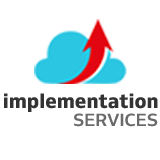Digital transformation is a growing trend in which businesses implement digital technologies to grow their business and meet customer needs. See The Ultimate Digital Transformation Guide for answers to your questions about digital transformation and how it can help your business succeed in today’s digital environment.
While many businesses have started their digital transformation journey, they still don’t know why. What benefits will embracing digital transformation bring to your company? This blog will help you understand the top 8 benefits of transforming your business digitally as you embark on your journey.
1. Business Continuity
Achieving digital transformation is vital to keep up with the new technology, but it’s easy to get left behind. The data and innovation are real-time and accessible in a secure environment. Today’s digitally native workforce prefers a digital-forward environment that streamlines day-to-day operations while empowering employees to grow with the organization. By embracing digital transformation, you secure your future success as an organization.
2. Maintain a secure network
Businesses embracing digital technology are streamlining their organizations with technological advancements. Encryption is vital for protecting data, as companies will face more security concerns in the future. By upgrading systems with encryption, companies can better protect themselves against malicious attacks resulting in thousands of hours of lost productivity and millions of dollars in losses. A single network breach can damage an organization’s reputation and hamper its ability to adapt to its customer’s needs and the competitive industry landscape. By staying up to date with the latest security innovations, you are better equipped to protect your company data with encryption.
3. Establishing more efficient operations
Digital transformation has the potential to significantly improve operational efficiencies and minimize the complexity of integration efforts. Digital transformation relies on digital tools that are designed to work together. These tools streamline business processes and increase productivity by automating manual data entry. A reliable system can help you avoid downtime, delays, and errors common in manual systems when implemented correctly.
4. Increase profits faster
To maximize return on investment (ROI), we recommend that new technologies be deployed in small, quick-turn deployments. These rapid deployments enable you to gain real-time insight into your business operations and allow faster ROI analysis. To ensure your digital transformation positively impacts your business operations, we recommend measuring the amount of new revenue credited to your just-made digital investment by determining how much additional income was generated by deploying the latest technology.
5. Scale as Your Business Needs Grow
Small businesses mistakenly believe they are too small to benefit from digital transformation. The misconception stems from the fact that legacy systems were not created to scale with business growth, which becomes a barrier and results in lost opportunities and costly re-platforming. By bundling digital tools together, you can save and scale as your business grows.
6. Streamline communication
Communication is key to an effective digital transformation, as tools that streamline communication with your organization’s employees and partners can help facilitate a successful change.
When you integrate your systems, you are improving how they communicate with each other. This data consolidation streamlines your business practices, allowing everyone to work off the same information and enabling you to identify and remove bottlenecks. A streamlined process means that customers receive a better, more consistent experience because all their communications come from a single source of truth.
7. Enhance the customer experience
Many industries’ digital transformation is changing how customers interact with businesses. A customer’s journey, which is often made up of multiple touchpoints, can be influenced by several factors, including communication, marketing and sales. If a business truly has its customers’ best interests in mind, it must consider their changing needs at every step in its journey, from initial contact through conversion. To do this effectively, you need to have access to timely insights into consumer trends and sales history, as well as predictive forecasting and analytics so that you can plan your future operations by learning from the past. Customer service is one factor that can make or break an organization; delivering what your customers need when they need it will ensure that your brand remains top-of-mind and helps you win over even more loyal fans.
8. Be flexible
For any business to succeed in an increasingly disruptive and turbulent market, it must be able to adapt quickly. Digital transformation is the key to such readiness, as it equips companies with the tools they need to tackle the industry today and tomorrow without anxiety over uncertainty. A well-equipped company can scale its business or change course easily; in doing so, it will have everything it needs to succeed.
How Acumatica can help you
Acumatica Cloud ERP is an integrated business platform that enables companies of all sizes to transform their operations. Acumatica’s flexibility allows companies to smoothly grow and expand, helping them remain competitive in their industries.
Tayana Solutions offers comprehensive software consulting in e-commerce, manufacturing, and custom solutions. We specialize in process manufacturing. We are a Gold Certified VAR and ISV partner for Acumatica. Please visit www.tayanasolutions.com to learn more about our compassionate approach to digital transformation services.

Vijay comes with a vast experience in ERP and enterprise solutions space with about 20 years of experience in various packaged application like Acumatica, SAP, Orion, Salesforce.com, SugarCRM and, SalesLogix.
















